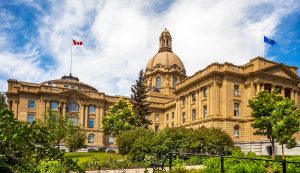A COVID-19 emergency can create a range of costs from lost wages to travel expenses and now is a good time for construction employees to check out their insurance coverage, especially if they are working in Canada but outside their home province.
There are three different levels of coverage to check, said B.C. Coalition of Construction Associations president Dave Baspaly.
The first check is provincial health care plan coverage while the second is relates to extended benefits that may be covered under the employer’s or union health care plan. Baspaly also suggests looking at sick days available. (Compensation can also be given under Workers Compensation Boards). The last area is any private insurance. Private insurance covers a range of services from private plans to travel insurance and credit card coverage.
Private health insurers, though, have not created a lot of new products that covers individuals who contract COVID-19, said Baspaly. “Instead there are exclusions or limitations.”
When ill, most fall back on their provincial medical services plans. But, such plans are provincial in jurisdiction and come with limitations, especially for those working outside the province.
Colleen Book, media relations for the Saskatchewan Ministry of Health, said via email that travelling or out-of-province individuals are covered for the costs of most physician and hospital services through an agreement known as the Inter-Provincial Reciprocal Billing Agreement (IRBA). But, it only covers those services provided within the publicly-funded system. “As such, the vast majority of medically required physician services, (in-hospital) diagnostic services, inpatient hospital costs and emergency services, can be billed through the IRBA,” she said.
There are caveat under the IRBA plan: Quebec is not party to the IRBA and out-of-province individuals can be directly billed and then claim later against their provincial plan. All medical services outside a hospital must be rendered by a physician working within the provincial system to be covered.
“(B.C.’s) Medical Services Plan does not provide coverage for treatment provided by other health care practitioners, e.g. physician assistants, nurse practitioners, chiropractors or physical therapists unless they are providing inpatient hospital services,” said Stephen May, spokesperson for B.C.’s health ministry.
Alberta’s Tom McMillan, spokesperson for Alberta’s health care plan said physician and hospital costs are covered. “Coverage for other health services, however, varies by province. For example, ambulance transportation and home care may not be covered. It is important to find out what’s covered and what’s not covered before obtaining other health services.”
Another caveat with provincial health care plans is a residency requirement that has to be met and maintained – even for those working out of province. The requirement in B.C. is six month working within the province. Saskatchewan has a requirement of five months but allows longer periods of absent.
Saskatchewan’s Book said residents who have a Saskatchewan Health Services card and will be absent from the province for seven months or more are required to complete a Notification of Extended Absence form. The person, then, would retain their Saskatchewan health coverage if the following conditions were met: they were travelling for employment purposes, are within Canada for a maximum of 12 months and outside Canada for a maximum of 24 months. “When you return from any extended absence from the province, you need to contact Health Registries to ensure your Saskatchewan Health Services card is still active and you are entitled to benefits,” she said.
The bottom line: know what your provincial health care coverage includes both in and out-of-province; make sure you meet the residency requirements; and all fees if applicable are paid up.
There are three places to look for extended benefits. Union locals all provide extended benefits for members but coverage varies between trade unions and locals, according to the BC Building Trades. One of the largest unions is the International Brotherhood of Electrical Workers Local 213 which covers Southern B.C., Metro Vancouver and the Okanagan, and has its own health and welfare plan.
Plan administrator John Pesa said the union tries to fill in where the provincial health care system leaves off and has reciprocal agreements with other unions out of province. It remits an hourly wage rate back to a union member’s home union to help defray needed health services. Local 213 provides extra coverage such as physiotherapists, medical equipment such as wheelchairs and oxygen, prescription costs, optical and dental. Providing ambulance service or air-vac a sick employee out from camp to a hospital would fall under the employer’s obligation, Pesa said.
Independent Contractors and Businesses Association’s spokesperson Jordan Bateman said it offers The Construction Industry’s Benefit Plan (CIBP) to approximately 1,000 companies. “The offer varies according to the employer’s plan,” he said, as there is a standard, enhanced and platinum policy. Each extended benefits policy offers coverage for travel, dental, life insurance, critical disease, disability, drug and pharmaceutical costs, massage, acupuncture, vision and foot care and dental however the payout varies according the plan an employer opts for. Employees should check with their employer to see what the coverage entails, Bateman said.
As well, the CIBP website provides a COVID-19 page that provides information on government programs and links to supplement wages during quarantine. (See https://mycibp.ca/covid-19)
WorkSafeBC may also be a place to search for coverage, but only after contracting COVID-19 and employees can show the exposure was related to the workplace. It is on a case-by-case basis. Media relations officer Alexandra Skinner said, via email, that “WorkSafeBC pays benefits to workers who have been diagnosed with COVID-19, and likely contracted the illness in the workplace. If a COVID-19 claim is accepted, the worker receives wage-loss benefits and health care supports as needed.” However, it does not pay coverage for people who are symptom free, even when quarantined, self-isolating, or sent home on a precautionary basis.











Recent Comments
comments for this post are closed